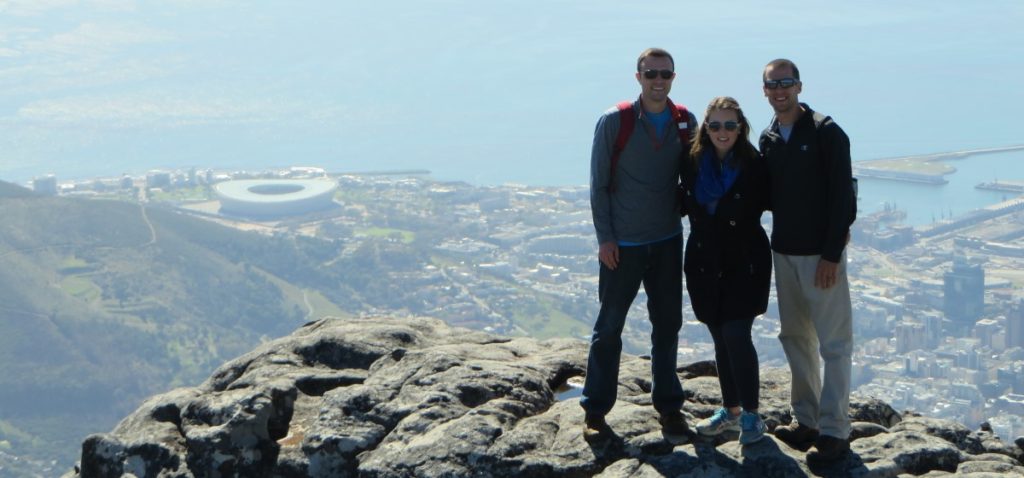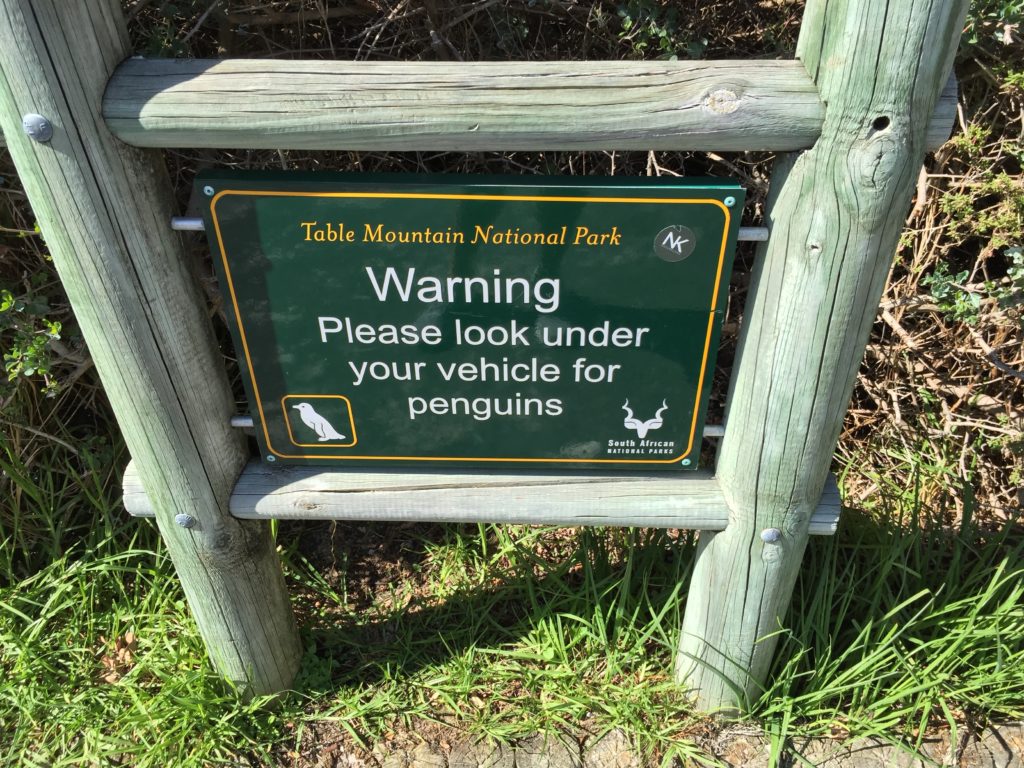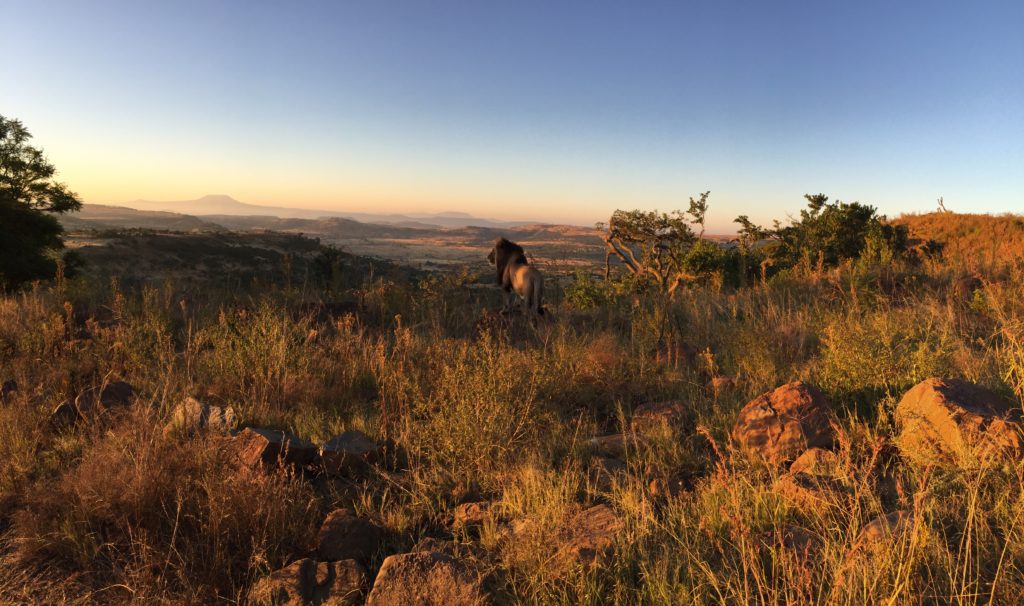
I’ve had the good fortune of being able to travel overseas on a few occasions, so I consider myself to be a fairly seasoned traveler. I’m no Rick Steves, but I’m comfortable getting around in foreign countries, even when I don’t speak the language. Yet, like a lot of people, I still get anxious about handling money while I’m traveling, especially overseas.
So, when I recently left for a 19-day trip to South Africa to visit my sister and her husband, both of whom are missionaries at an HIV orphanage, I was a little more anxious than usual. After all, South Africa is a long ways away, and I was going to be over there for an extended period of time.
If you, like me, also get a little uneasy about how to best handle money when you’re traveling, here are seven travel tips that I keep in mind whenever I leave the great state of Texas.
1. Place travel advisories on your debit & credit cards.

When you arrive at the Dubai airport after a 15 hour flight, the last thing you want to think about is, “Did I remember to put a travel advisory on my debit card?”
Anytime you travel out-of-state—and especially out of the country—it’s a good idea to give your bank a heads up. To protect your account, banks are constantly monitoring transactions for suspicious activity. So, if you buy gas in Waco on Tuesday and then use an ATM in Dubai on Wednesday, unless you told your bank ahead of time about your trip, your card is likely going to be suspended.
2. Make note of how to cancel your cards.
In some countries, pick-pocketing is more prevalent than it is in the United States. In the event that your wallet is stolen or lost, knowing how to cancel your cards can prove valuable. Typically, I create a note on my iPhone with details about my cards, including the last four digits of the account, the three digit security code, and the customer support phone number. Hint: You can also put other travel-related info in the note, like your frequent flyer number.
Since international phone calls can sometimes be expensive, you might also make note of other ways you can cancel your card. For example, some banks will let you cancel your card via their online/mobile banking. And, some banks also offer online chat services, where you can communicate with a support representative without having to make an international call. Shameless plug: CNB offers both of these.
3. Carry multiple forms of payment.
When you travel, not only is it a good idea to carry a decent amount of cash, but it’s also a good idea to take more than 1 debit/credit card with you. Why multiple cards? Well, if one of your cards is lost, stolen, or compromised, at least you have another card (or two) to fall back on.
4. Only carry what you need.
Wait, didn’t I just say to carry multiple forms of payment? Yes. And, I absolutely stick to what I said. However, once you’ve reached your travel destination, there’s no need to carry all your cards while you’re hanging out with the penguins at South Africa’s Boulders Beach. Leave some cash and at least 1 of your debit/credit cards in the safe (or hidden in your luggage) back at the hotel.
5. Read up on your cards’ benefits.
Some debit and credit cards offer benefits that you don’t normally think about. These can include a number of things, but the one that most comes to mind is auto rental accident coverage. And, I only say that because, when the right rear hubcap of your Budget Rent-A-Car Toyota Corolla mysteriously vanishes on the streets of Cape Town, you’ll be glad you did a little research prior to your trip. Yes, this actually happened.
Before you leave, contact your card issuer and ask about the benefits and protections (if any) associated with your card. In addition to auto collision coverage, some cards also offer lost luggage insurance and concierge services. You’ll also want to ask about any applicable fees you might incur while traveling, like foreign transaction fees or ATM withdrawal fees. Depending on your card, it’s oftentimes more cost effective to get cash at an ATM than using the currency conversion kiosks at the airport. Note: VISA cardholders can calculate the exchange rate associated with their card by using this exchange rate calculator.
6. Know your limits.
On vacation, it’s not uncommon to make large purchases that might come close to (or exceed) your card limit. If you don’t already know what the limit is on your card, contact your issuer to find out. If you think your limit won’t be high enough to cover your trip expenses, it’s important to know that many debit card issuers can increase your daily limit upon request—the usual point-of-sale limit is $1,500 per day.
7. If your card declines, try it again with the PIN.
This is a good rule to follow regardless of whether you’re traveling or not. Depending on the country you’re in, technology glitches, and a whole other host of variables, sometimes your debit card will only work by entering the PIN. So, if you get a decline when trying to pay with your card, try running it again as a debit transaction, and this time, enter your PIN.
While these travel tips aren’t foolproof, they should—at the very least—provide you with enough peace of mind so that you can fully relax and enjoy your trip. Although, regardless of whether or not you follow these tips, it’s hard to relax when a male lion is less than 20 ft. away.




